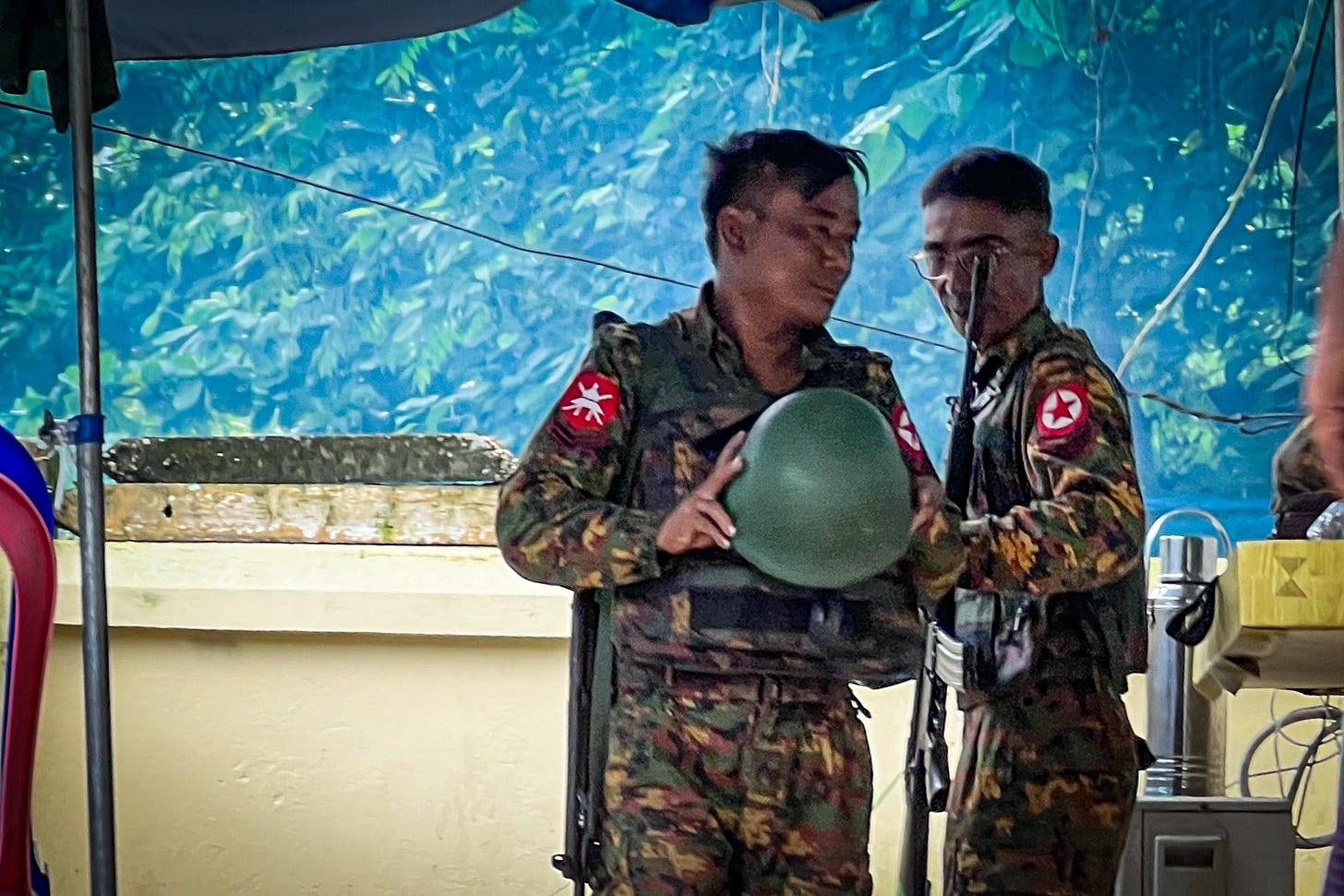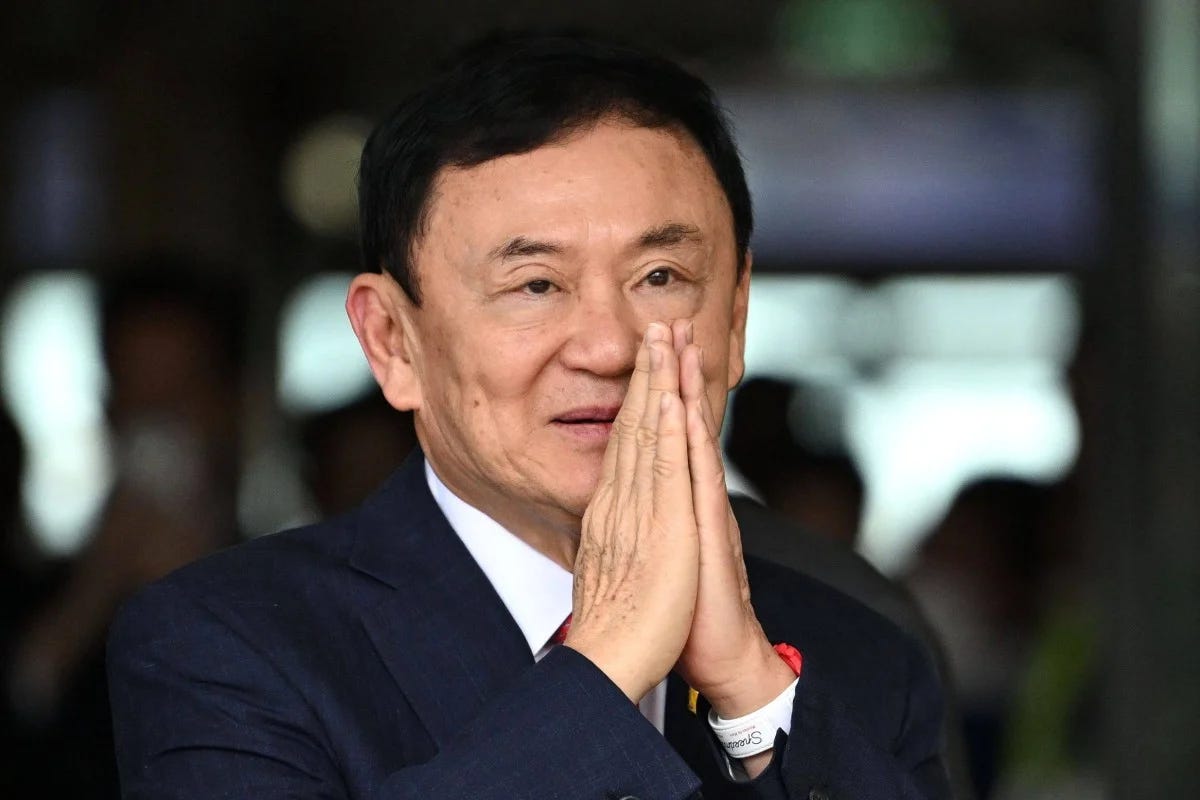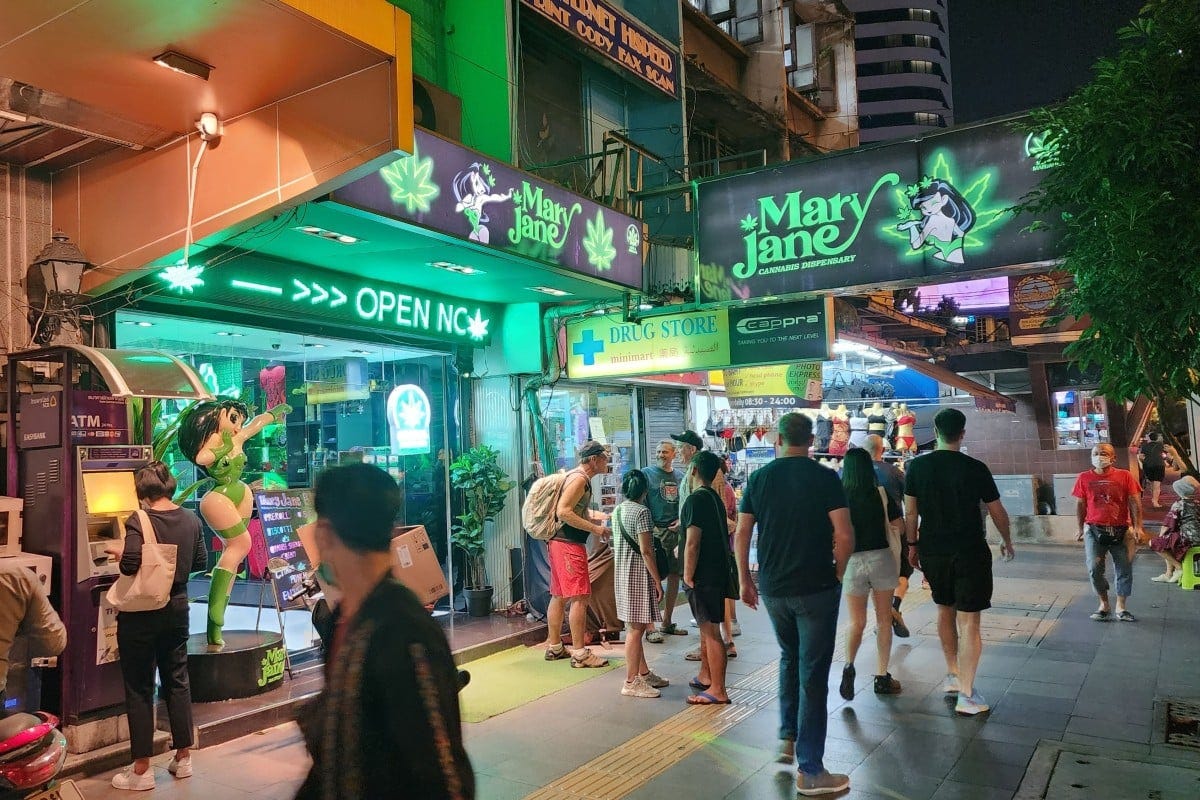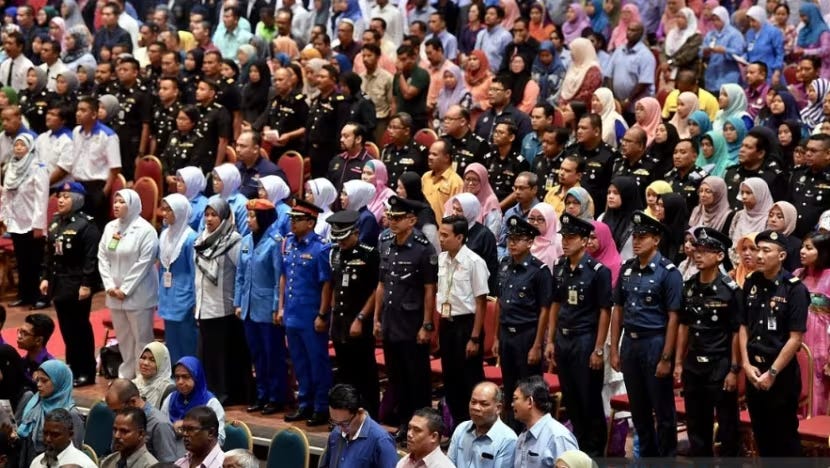SEA & World Briefs (14 Feb): Indonesia’s election; Myanmar mandates national military service; Malaysia scraps pensions for new civil servants
Welcome to Wednesday, readers!
Today we’ll focus more on major country-specific news across ASEAN, while taking a break from the geopolitical stories. Some stories to keep track of are Indonesia’s election day, Myanmar’s mandatory military service for the young population, and more.
Let’s get right into it
Tables of Contents and Summaries
🇮🇩 Indonesia Votes in Pivotal Election
Indonesia's monumental election day has commenced, choosing not only a new president but also Parliament and local representatives. The outcome could significantly influence both the nation's democratic trajectory and its international stance on climate change.
🇲🇲 Myanmar Junta Enforces Mandatory Military Service Amid Opposition Struggles
Myanmar's military government mandates national military service for young men and women, reflecting the junta's desperate measures to maintain control amid escalating armed resistance and international condemnation.
🇹🇭 Former Thai PM Thaksin Shinawatra Set for Early Release
Thailand is set to release former Prime Minister Thaksin Shinawatra early from his corruption sentence, stirring political intrigue as his affiliated Pheu Thai party takes governmental reins, highlighting the nation's deep-seated political divides.
🌿 Thailand's upcoming Ban of Cannabis Could Face Hundreds or Thousands of Lawsuits from Shops and Producers
Thailand's cannabis industry braces for potential legal and economic turmoil as the government considers rolling back marijuana legalization, a move criticized for its political motivations rather than public health benefits.
🇲🇾 Malaysia to Scrap Pensions for New Civil Servants Amid Financial Strain
Facing financial duress, Malaysia plans to end its traditional pension scheme for new civil servants, shifting towards a provident fund model. This decision sparks debate over its impact on the country's civil service and broader economic stability.
Social/Economic
Indonesia Votes in Pivotal Election
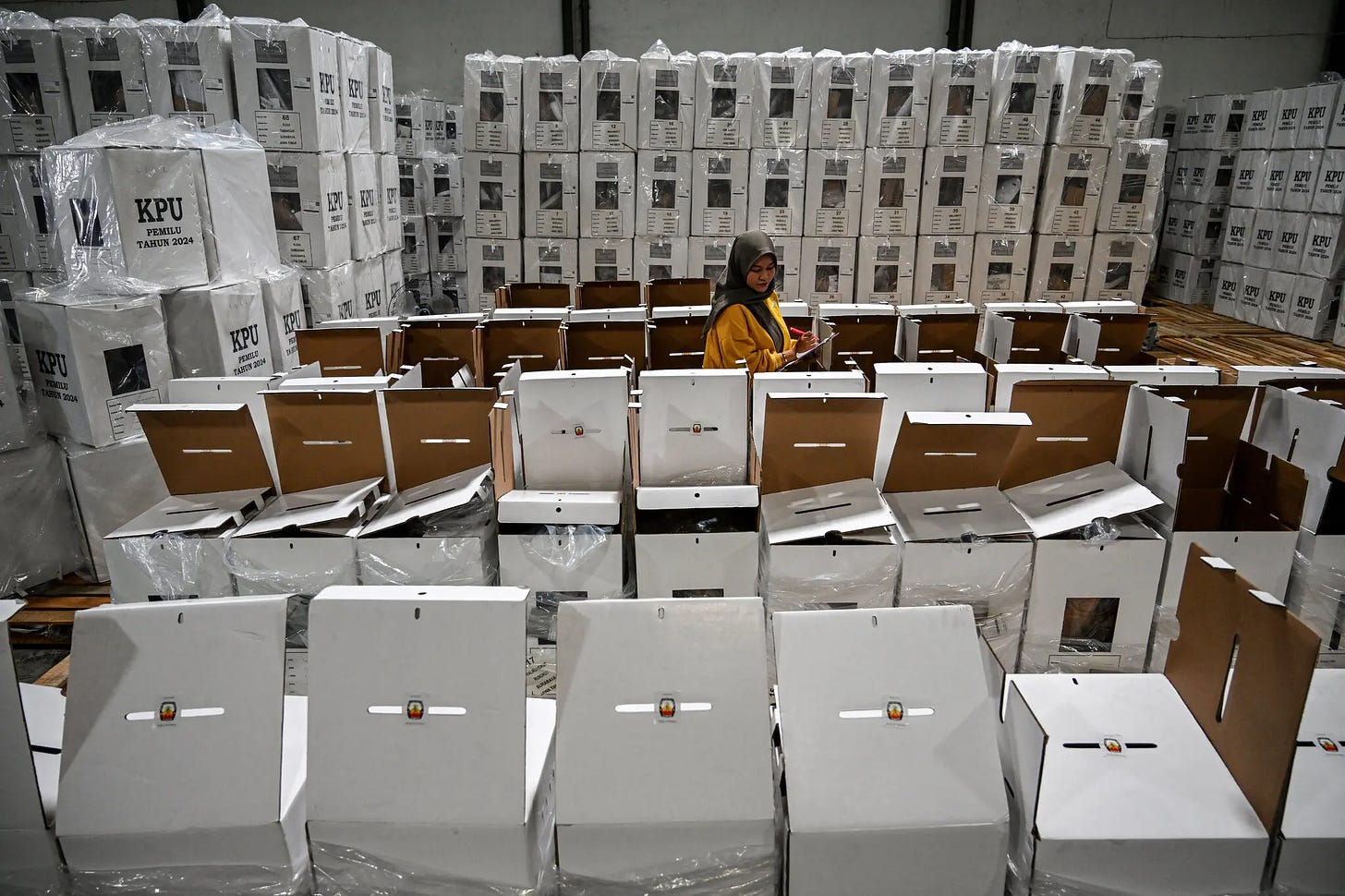
The nation is electing a new president, Parliament, and local representatives today.
President Joko Widodo leans towards Prabowo Subianto, showing an implied alliance, with Prabowo leading in the polls. Prabowo, a figure from Suharto's era, carries a controversial past.
Anies Baswedan, pushing for change, and Ganjar Pranowo, with his roots in governance, are also in the race.
Global and domestic implications: The election's outcome holds significance for international relations and climate policy, marking a pivotal point for one of the world's top carbon emitters and a crucial moment in Indonesia's democratic journey.
Legacy of Joko Widodo: The election reflects on Widodo's tenure, highlighting Indonesia's economic growth versus democratic challenges, with a strong public inclination towards continuity.
The focus shifts on whether Prabowo can secure the presidency in a single round, amid concerns of a possible authoritarian drift despite expectations of continued democratic norms.
Myanmar Junta Enforces Mandatory Military Service Amid Opposition Struggles
Myanmar's military government has activated a law requiring men aged 18-35 and women aged 18-27 to serve at least two years in the military, highlighting the junta's ongoing battle to suppress resistance following its 2021 coup.
Since seizing power and disrupting a decade of democratic progress, the junta faces significant armed resistance, marked by recent losses to ethnic minority groups.
The announcement from February 10, 2024, did not specify how the conscription would be implemented but mentioned forthcoming regulations from the defense ministry.
Increased Militarization Efforts: Amid nationwide opposition, the junta aims to bolster its forces by arming pro-military militias and emphasizing the necessity of a national military service.
Originally drafted in 2010, the law includes provisions for extending service up to five years during emergencies, a condition applicable since the 2021 military takeover.
Growing Armed Opposition: The coup has galvanized tens of thousands to join "People’s Defence Forces," challenging the junta's authority and achieving significant victories, particularly in northern Shan state.
Successes by resistance forces and the failure of the military to effectively counter these offensives have reportedly undermined morale within the junta's ranks.
The crackdown on dissent has resulted in over 4,500 deaths and more than 26,000 arrests, underscoring the severe human rights implications of the conflict.
Former Thai PM Thaksin Shinawatra Set for Early Release
Thailand's government has declared that former Prime Minister Thaksin Shinawatra, jailed for corruption and abuse of power, will be released possibly by the weekend, after serving six months of a reduced one-year sentence.
Initially sentenced to eight years, Thaksin's term was shortened to one year by King Maha Vajiralongkorn shortly after his return from a 15-year exile.
Justice Minister Tawee Sodsong cited Thaksin's age, 74, and critical health condition as factors qualifying him for early release among 930 prisoners.
Thaksin, having faced health issues, was moved to a police hospital soon after sentencing. His early release is seen as part of a legal arrangement, coinciding with his Pheu Thai party's return to power.
Prime Minister's Support: Prime Minister Srettha Thavisin, representing Pheu Thai, confirmed the release, emphasizing its legality and Thaksin's enduring popularity, suggesting he could still offer valuable advice.
Details on Thaksin's release conditions remain vague, but he may be subject to electronic monitoring and travel restrictions.
Thaksin remains a polarizing figure in Thailand, admired by many for his populist policies but opposed by the royalist and military establishment.
Amid his return, Thaksin faces lèse-majesté charges related to past comments, highlighting the ongoing political tensions surrounding his figure and legacy.
Thailand's upcoming Ban of Cannabis Could Face Hundreds or Thousands of Lawsuits from Shops and Producers
Thailand's cannabis industry faces potential legal hurdles as the government considers a bill to restrict legal marijuana, driven more by political motives than public health concerns.
Entrepreneurs and advocates warn of significant economic damage and a flurry of lawsuits if the proposed laws, banning recreational use and reinstating harsh penalties, are enacted.
Since decriminalization, the sector has flourished, reaching a valuation close to $800 million, with projections to hit $1.2 billion by 2025. The proposed rollback threatens this expansion and could impact thousands of jobs and investments.
Political undertones: Critics attribute the regulatory push to political maneuvering by the current administration, suggesting the bill's harsh measures are unlikely to pass without significant amendments.
Stakeholders advocate for regulation to ensure product safety and public health rather than outright criminalization, fearing negative impacts on the economy and the burgeoning cannabis tourism.
Some see a future where Thailand adopts a model similar to California's pre-2018 approach, focusing on medical use with regulated recreational access as a compromise.
Malaysia to Scrap Pensions for New Civil Servants Amid Financial Strain
Malaysia announces the end of the traditional pension system for new civil servants, shifting to the Employers Provident Fund (EPF) to mitigate the financial challenges posed by an aging retiree population and increased life expectancy.
The move, aimed at preventing future bankruptcy, comes as pension payouts have surged, with projections indicating a significant increase in government spending on pensions in the coming years.
The policy change will not impact existing civil servants but requires parliamentary debate and constitutional amendments, sparking widespread criticism for its lack of stakeholder consultation.
Political and Racial Implications: Allegations arise that the reform may disproportionately affect Malays, who form the majority of Malaysia's civil service, with critics highlighting the move's sensitive political and racial dimensions.
Despite lower salaries in the civil service, the pension system's security has historically been a major draw, with experts and unions expressing concerns over the new scheme's adequacy for retirement.
Critics warn that eliminating pensions for new hires could diminish the civil service's appeal, particularly affecting crucial sectors like education and health, and call for better engagement and salary adjustments.
Prime Minister Anwar Ibrahim commits to raising civil servant salaries amidst financial constraints, with a comprehensive review of the public service remuneration system underway.



